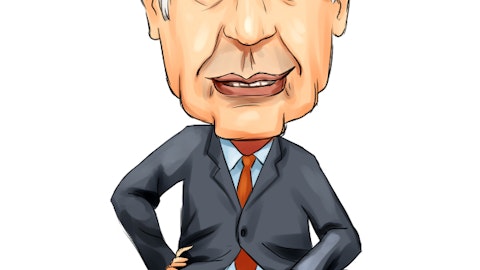Shareholder activism has been on a surge following the aftermath of the financial crisis and is anticipated to keep expanding despite the somewhat disappointing performance delivered in 2015. The recent stock market sell-off has impacted activist hedge funds quite strongly, which led many analysts and investors conclude that pure-play activist investment vehicles might not survive bear markets. Truth be told, it would be quite hard for activists to turn around troubled companies amid worsening economic conditions and constantly falling equity prices. Although the number of activist campaigns may slow down amid increased volatility and uncertainty in equity markets at the moment, constructive and long term-oriented shareholder activism will most likely keep intensifying in the upcoming years given their perceived benefits and high returns. Having said that, the following article will digest four 13D filings submitted with the SEC by widely-known, as well as less known, activist hedge funds.
Through extensive research, we determined that imitating some of the picks of hedge funds and other institutional investors can help generate market-beating returns over the long run. The key is to focus on the small-cap picks of these investors, since they are usually less followed by the broader market and are less price-efficient. Our backtests that covered the period between 1999 and 2012, showed that following the 15 most popular small-caps among hedge funds can help a retail investor beat the market by an average of 95 basis points per month (see more details here).
According to a newly-amended 13D filing, Robert Joseph Caruso’s Select Equity Group L.P. owns 3.39 million shares of Shake Shack Inc. (NYSE:SHAK), which represent 8.9% of the company’s outstanding common stock. SEG owned nearly 2.44 million shares of Shake Shack at the end of December 2015, as revealed in the fund’s 13F filing for the fourth quarter. Shake Shack Inc. (NYSE:SHAK) operates and licenses Shake Shack restaurants, which are “roadside” burger stands serving hamburgers, hot dogs, crinkle-cut fries, and other products. There were 75 Shacks in operation at the end of September 30, of which 41 were domestic company-operated, five were licensed in the United States and 29 were licensed in other countries around the globe. Moreover, the company completed nine system-wide Shack openings during the fourth quarter of 2015 and plans to open at least 13 new domestic company-operated Shacks in 2016. Shake Shack’s 2015 total revenue grew by 60.8% year-on-year to $190.6 million, while Shack sales in particular increased 63.5% to $183.2 million. It should be noted that same-Shack sales growth achieved a rate of 13.3% in 2015, a rate that is significantly above the company’s expectations for 2016. Investors and analysts believe Shake Shack’s management is being quite conservative with its 2016 guidance, as it anticipates same-Shack sales to grow in the range of 2.5% to 3.0%. It appears that the freshly-revealed disappointing guidance for 2016 put some weight on Shake Shack’s stock, which is down by 13% year-to-date. Philippe Laffont’s Coatue Management acquired a new stake of 153,138 shares in Shake Shack Inc. (NYSE:SHAK) during the December quarter.
Follow Shake Shack Inc. (NYSE:SHAK)
Follow Shake Shack Inc. (NYSE:SHAK)
Receive real-time insider trading and news alerts
The next two pages of this article discuss the remaining three SEC filings submitted by Elliott Management and other hedge fund vehicles.



